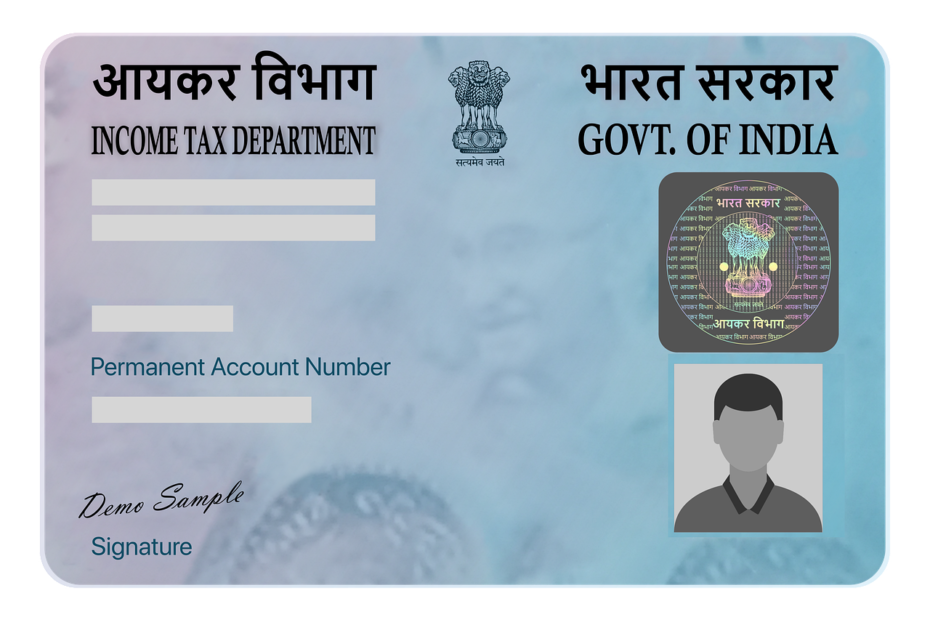All of the official documents that you hold with you come in handy in one way or another; otherwise, why would they carry the importance that it does? But, most times, we never know the weightage that our documents carry.
The same stands for the PAN Card. Are you completely sure why you hold your PAN Card? Why you should apply for it? What does the document hold for you in the future? How to use this card and so many other questions could possibly pop up in your head.
So, here we are to talk about the importance of the PAN card and why it is used among us
PAN Card – The Meaning
PAN is an acronym for Permanent Account Number. Each taxpayer is assigned an alphanumeric, 10-digit unique number by the Income Tax Department of India. Each PAN number is distinct and unique to each individual.
The PAN number records a person’s financial transactions and is necessary for all forms of payment. A PAN card looks to be a tangible plastic card bearing one’s PAN number, name, DOB, and photographs. It remains unaffected by changes in address or job profile, hence, the PAN number is valid for life and can thus be used as proof of identity.
Why is PAN Card Useful? – Things You Should Know
a) You Need It to Open Accounts
A PAN is required as an essential document for opening numerous accounts. This comprises
- Bank Accounts: A PAN card is necessary for all bank accounts except saving account plans under the Pradhan Mantri Jan Dhan Yojana.
- NRO Accounts: If NRIs want to open rupee-denominated NRO accounts to save money received in India, they must provide PAN card information. However, for NRE or FCNR accounts, Form 60 can be used in place of a PAN.
- Demat Accounts: If you want to hold financial securities such as shares, bonds, or ETFs, you must have a Demat account. Only if you know how to know PAN card number can you open this account.
b) You Need It For ITR
A PAN card is useful for a variety of tax-related procedures, including:
- Reduce TDS (Tax Deduction at Source): Quoting a PAN Card at various places can also assist in lowering the TDS rate. For example, if a PAN is not provided, banks will take 30% TDS on the interest generated beyond ten thousand rupees in a savings account instead of 10%.
- Submitting ITR: A PAN is required for any individual, resident Indian, or NRI while filing income tax returns.
- Tax Refunds: Tax refunds are available when the taxpayer’s tax burden exceeds the amount paid in TDS. The bank account where you want the reimbursement, however, must be linked to your PAN.
c) You Need It To Buy or Sell Goods and Services
Whether you are buying or selling any of the following things, you need to provide your PAN Card information.
- Any goods or services with an invoice value greater than Rs 2 lakh.
- Immovable property and assets worth more than Rs 10 lakhs.
- Except for two-wheelers, all vehicles.
- Securities worth more than Rs 1 lakh.
- Gold & Bullion worth more than Rs 5 lakh.
d) You Need It To Register Your Business
When you register a business, you must obtain a unique Tax Registration Number (TRN), which can only be obtained if you provide PAN details for your company and the rightful owners.
e) You Need It As Proof
Aside from being required for different transactions and tracking your tax liability, the PAN card also functions as a piece of legal identity evidence.
f) You Need It For Transactions
Cash Deposits in Bank Accounts: If you deposit cash in your or someone else’s bank account, you must provide PAN details if the deposit exceeds Rs 50,000.
- Demand Drafts and Banker’s Cheques: PAN data are required for the issuing of bank draughts, pay orders, or banker’s cheques in excess of Rs 50,000.
- Life Insurance Premiums in a Financial Year: If the insured’s life insurance premiums exceed Rs 50,000 in a fiscal year, the PAN data must be provided.
- Pre-paid Instrument Payments in a Fiscal Year: Payments to e-wallets, gift cards, and pre-paid cash cards that surpass Rs 50,000 in a calendar year will necessitate the submission of your PAN information.
- Purchasing Mutual Funds, Debentures, and Bonds: If you purchase mutual funds, debentures, or bonds worth more than Rs 50,000 in a calendar year, you must provide your PAN data.
- Hotel and Restaurant Bills: When paying hotel and restaurant bills in cash that surpass Rs 50,000 in value, you must submit PAN details.
- Cash Payments for Travel: Cash payments for travel above Rs 50,000 for a single trip need the traveler to provide PAN details.
g) You Need It For Foreign Transactions
You must provide PAN details for numerous foreign transactions, regardless of the volume of the transaction, such as;
- Money transfer out of India.
- Transferring funds from an NRE to an NRO account.
Conclusion
Getting to know the entire information on the uses of your official documents is essential. So, make sure you know why you need a PAN card. These details might have helped you to know why the PAN card holds the importance that it does and why we apply for it much early in life.
